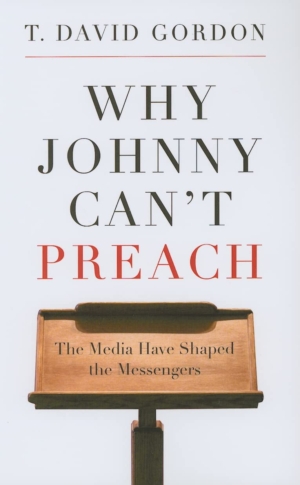Years ago I remember hearing an elder say that if my sermon could be accepted in a Jewish synagogue then it is not a distinctively Christian sermon. I’ve thought a lot about that over the years. What makes Christian sermons distinctively Christian? . . . Continue reading →
homiletics
Trueman: It Was Not Chrysostom’s Administration Of The Sacraments That Led To HIs Death
Years ago, when teaching at a seminary, I was responsible for the course on the ancient church. In every class I have ever taught, I have regarded it as my chief task to introduce students to the great primary texts on the . . . Continue reading →
New: Resources On Preaching
In a sense everything on this site is intended to help pastors, elders, deacons, and laity better serve Christ but some of the resources are specifically focused on the nature and act of preaching because, in distinction from some traditions, in the . . . Continue reading →
Video: Godfrey On Preaching
Bob Godfrey and Chris Gordon talk openly about the challenges and blessings of preaching Continue reading →
Any Text Without A Context Is Pretext For A Prooftext
So said my homiletics (preaching) professor, Derke Bergsma. I do not know if that aphorism was original to Derke (he often quoted R. B. Kuiper to us in class, e.g., “Men, there are three points to every sermon, the text, the text, . . . Continue reading →
Review: Why Johnny Can’t Preach: The Media Have Shaped the Messengers By T. David Gordon (Part 1)
I am a fan of T. David Gordon. He writes well. He speaks plainly. He does not mince words. With some writers, it is quite possible for five people to read them and come away with five different conclusions about what the . . . Continue reading →
Review: Why Johnny Can’t Preach: The Media Have Shaped the Messengers By T. David Gordon (Part 2)
Up to chapter four, Gordon has focused on the form of preaching. But at this point he turns to questions of content. He says, “In addition to the cultural matters that have concerned me throughout, I also believe that preaching today fails . . . Continue reading →



